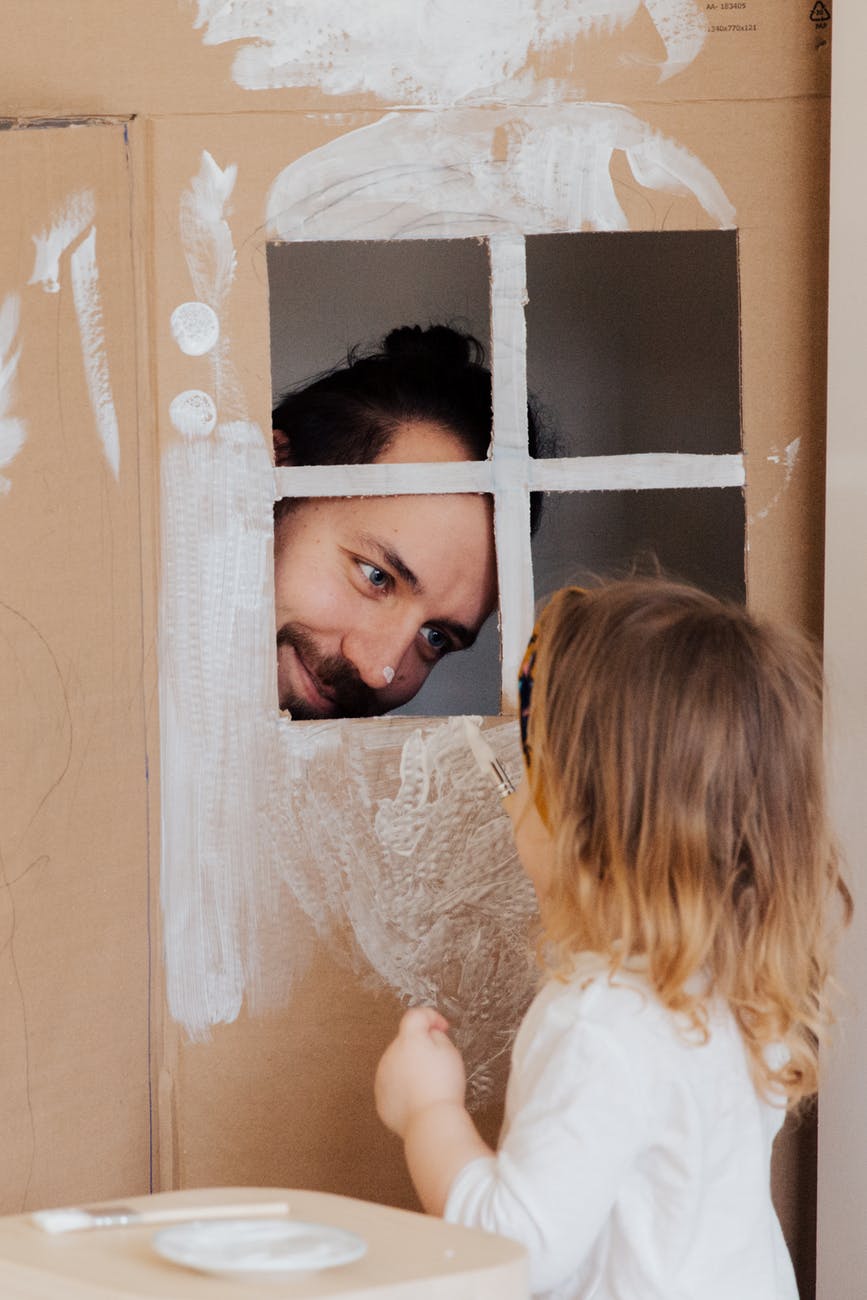Children who have an engaged father are 43% more likely to earn A’s in school and 33% less likely to repeat a grade.
In a series of studies in the 1980s on the effects of paternal involvement on child development, researchers discovered that children with highly involved fathers expressed increased cognitive competence, more internal locus of control, increased empathy and fewer sex-stereotyped beliefs.
These studies found that having two highly involved parents increases cognitive competence due to their interaction with different behavioural styles. Paternal involvement allows both parents to pursue rewarding and fulfilling personal interests and have a close relationship with their children, thus creating a family context in which both parents are satisfied.
Also, parents who adopt fewer sex-stereotyped roles result in their children having fewer sex-stereotyped attitudes – as they do not place an expectation on each gender.
Traditionally, the father has been regarded as the breadwinner and secondary parent within the family. Today, the role of the father in the upbringing of their children is more recognised and appreciated. Fathers play a significantly different role to mothers, as they offer new techniques and values, providing a male perspective and contributing to childhood experiences.
What is An Engaged Father?
An engaged and involved father is present in his child’s life, demonstrated through meaningful interction and spending quality time together, such as attending sports events or helping out with homework. This engagement has also been found to improve the psychological wellbeing of fathers, through a sense of generativity.
Involvement can be measured by:
- Time spent with the child
- Warmth
- Monitoring and control (rules about activities, food, homework)
- Responsibility (tasks including changing nappies, buying clothes, disciplining children, playing)
A secure, supportive and sensitive relationship between an engaged parent and their child has benefits for all members of the family.

The Direct and Indirect Effect of the Father
Direct
Fathers have a direct effect on their children through the behaviour, attitudes and messages that they exhibit.
Fathers tend to spend less time with their children (due to work commitments, etc.) and are not as familiar with the language competencies of their children. Therefore, they are more likely to challenge their child’s pragmatic and linguistic abilities, by using more complex forms of speech.
Indirect
Fathers also have an indirect effect on their children in the following ways:
- Financial support – Financial contributions to the family have been found to improve the psychological well-being of fathers, including improved self-esteem and self-efficacy with increase financial contributions.
- Emotional support – Providing support to the mother, who is also involved in the care of the children, can improve the quality of the relationship between mother and child.
- Marital conflict – An unsupportive parental relationship can be damaging for children exposed to physical or emotional conflict.
- Housework – Participating in housework eases the mother’s workload and demonstrates behaviour that can be emulated by children.
Dads and daughters

Daughters will model their future relationships based upon their dad’s character and their relationship with him.
The father-daughter relationship will influence the expectations she places on men – the daughter will seek the same qualities from a man as her father exhibited.
Absent fathers have a negative impact on their daughters, affecting her ability to trust, appreciate and relate to men.
Daughters from father-absent homes are also prone to being either reluctant or sexually aggressive towards men due to their inability to form a meaningful relationship with their father.
Further, a lack of security and attention from the father negatively influences the daughter’s future sexual activity in the following ways, as she will:
- Take more sexual risks
- Participate in unrestricted sexual behaviour
- Be four times more likely to fall pregnant as a teen
- Partake in casual unprotected sex
- Have riskier casual flings
There is some evidence on the effect of paternal nurturance on the daughter’s intellectual growth. It appears that strictness and emotional distance between father and daughter stimulates intellectual functioning. Moreover, it is proven that daughters raised by fathers who are challenging and have abrasive interaction are more independent and intrinsically motivated. These characteristics arise from fathers who are firm and demand mature behaviour yet reward independence and achievement.
A 1997 study found that daughters from father-absent homes either under- or over-achieved at college. The tendency to attain a high level of education was part of an effort to receive acceptance from their fathers, whereas the difficulties faced by underachievers were intensified by seperation anxiety, denial, feelings of loss and perceived vulnerability issues.
Dads and sons
The bond between father and son tends to be stronger than that with daughters because sons identify with and model their behaviour based on their father.
Contact between father and son stimulates intellectual development and cognitive growth in children.
A Journal of Genetic Psychology study on the impact of fathers on the social competence of their 5-month-old son found that they were:
- Friendlier to strangers
- Vocalised more
- Show a greater readiness to be picked up
- Enjoyed play more
Another study from the Journal of Social Issues on the effect of a high degree of paternal involvement on boys found that they:
- Display fewer behavioural problems
- Are better socially adjusted
- Have stronger peer relationships
- Have a higher degree of self-esteem
- Are more mature and independent
But why is this the case?
The preference for a son exists before birth, with 3-4 times as many men preferring sons to daughters. This preference is evident in the early years – fathers more frequently communicate with and respond to their son’s vocalisations, play with their newborn sons for longer than their daughters, and are more willing to persist with overcoming challenging behaviour in sons than with daughters.
The reason for this could be that fathers see themselves in their sons and identify with them – viewing their achievements and failures as their own.

So how can I be a good dad?
From conception, fathers need to be making healthy decisions. The negative health outcomes of babies are often blamed on the mother. But the environmental exposure of the father also needs to be considered.
Habits such as binge drinking, poor dietary choices and stress can all have adverse effects on a baby’s health.
Throughout pregnancy, being a supportive and coaching partner helps to develop a bond at an early stage. Although infants may never remember interaction at such an early age, playtime with the child will strengthen that bond.

The difference between mothers and fathers
The difference in parenting style between mothers and fathers is evident in the different interaction style between parent and child.
Fathers are more physical in their interactions with children, as they tend to play rougher and engage in more exciting activities. Conversely, mothers are more verbal in their interactions and have a slow-paced parenting style. The approach from each parent complements and contrasts the other, meaning the child benefits from the diversity.
Other ways in which mothers and fathers differ include:
- Fathers emphasise conceptual communication, which assists children in expanding their vocabulary and intellectual capacities.
- Mothers express more sympathy and compassion towards their children, providing constant care to deal with their children’s needs.
- Fathers tend to encourage risk-taking from their children and provide a broader range of experiences, whereas mothers have a higher focus on their child’s safety and wellbeing.
- The strength, size and aggressive presence of fathers enable them to protect their children from negative influences and peers. This confrontational quality leads fathers to enforce discipline and encourage positive behaviour.
Warmth, nurturance and closeness are associated with positive outcomes in child development. The behaviour patterns acquired in childhood are caused by observing patterns demonstrated in parents and adopting similar behaviour. Fathers are crucial to the positive growth and development of children, and we should welcome the input and contribution that fathers make.




